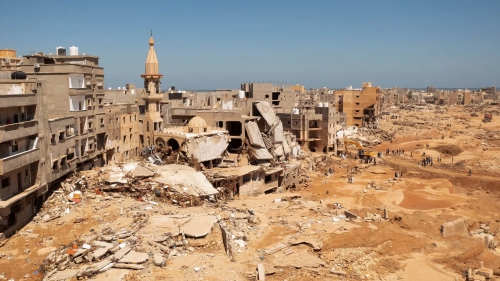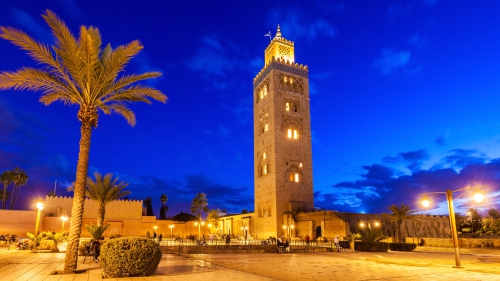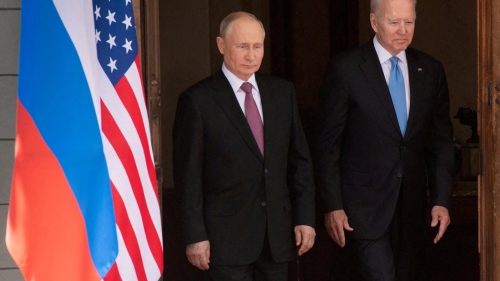Aging Muslim Leadership: Dropping Like Flies
First it was King Hussein of Jordan. Next went the emir of Bahrain, Sheik Isa bin Salman Al-Khalifa. More recently was the death of King Hassan of Morocco. With this trend towards attrition in the leadership ranks growing in the Arab and Muslim world, many analysts are wondering what will happen as ruling monarchs and dictators depart into the next life.
Aside from the three recent successions through death, the region has not witnessed any significant changes in government over the past 15 years. The region is unique in that most of the current leaders have called the shots for a long time; possibly for too long. Unfortunately this has created a situation in which smooth transfers of power are anything but guaranteed. But transitioning is only half the battle. Can new leaders rule effectively and can they gain the confidence of their increasingly more demanding and restless subjects?
The passing of these leaders and the potential disagreements on succession, their unresolved legacies and the reaction of the growing population of youth and educated women in the region pose some serious challenges.
In Saudi Arabia, the extremely ill 78-year old King Fahd has been ruling since 1982. His heirs are not exactly spring chickens either. Crown Prince Abdullah, who is effectively running the show already, is 76 and the next in line. After him stands Prince Sultan, who is 75. There are already some indications that the succession will not be smooth. In fact, some royals have come out openly in support of institutionalizing and formalizing the process of transfer.
Shifting our gaze away from the kingdoms and sheikdoms does not reveal a better picture either. There is no difference between the kings and sheiks and most of the other autocrats ruling much of the remaining Arab lands. Seventy year-old Syrian President Hafez Asad has suffered from heart problems for more than 15 years. Although he is preparing for his demise by reportedly grooming one of his sons, there are indications that his deputy, Abdel-Karim Khaddam, is also in the running -- clearly not a scenario for smooth transition.
Yasser Arafat, who recently turned 70, is not in the best of health and has not hinted of any successors. And if Moammar Qadhafi, Saddam Hussein or Hosni Mubarak were to breathe their last breaths anytime soon, there is a strong likelihood that we could witness political battlefields in these nations as well.
So there is a serious threat that nations could be left without any real direction. There is also the fear of conflicting directions as opposing factions vie for control. It is interesting to note that even Prince Talal bin Abdelaziz, one of the 27 sons who theoretically could end up being king of Saudi Arabia, hinted at the potential for conflict in an interview recently with the New York Times saying, "The real problem will come among our sons - the next generation - if matters are not arranged now."
There is also concern about the unresolved legacies left behind by leaders. For instance, in the case of Jordan, King Hussein left behind much responsibility for his inexperienced son. King Abdullah not only has to learn the ropes quickly but also must focus his attention toward Jordan's special role in final status talks on the issue of Jerusalem and Palestinian refugees. Moreover, the issues of water, borders and security will also arise. Some commentators, including Graham Usher, predict doom and gloom if the young King accepts the American/Israeli plan for Jordan to absorb the refugees permanently in exchange for financial aid. Far-fetched you say? Well, it's not totally implausible given that King Abdullah recently went around the world begging for help with his ailing economy. A desperate man can be seduced easily, especially when there is nobody to watch him.
While freedom and democracy are becoming more of a reality around the world, most Middle East nations are still struggling under tyrants. And while the main concern of most Arab leaders appears to be with passing the torch to a like minded individual, preferably within the family or at best within a limited circle outside the family, the vast majority of citizens face repression and economic and political stagnation.
What is interesting in all of this is the reaction of the Western world; the United States in particular, the self-proclaimed guardian of democracy. The United States has pushed for democracy all over the world, including Latin America, Africa and Asia. But when it comes to the Middle East, the Clinton administration has maintained silence on the issue of democracy. Unlike most other regions of the world, the U.S. agenda in the Middle East seems driven exclusively by the twin policies of preserving and protecting Israel and ensuring the free flow of oil. Heck, you could be a despot persecuting your own people or denying freedom, but all is fine and well as long as you reach out to Israel and don't stand in the way of cheap oil getting to the American gas pumps.
Such a strategy may appear to benefit Israel and America in the short term, but is guaranteed to fail in the long run. There is ample evidence from the history of Egypt, Israel and Algeria that repression and persecution only breeds extremism and resistance. Such a strategy will ultimately not only hurt the region, but the whole world through instability.
Topics: Celebrities, Hussein Bin Talal, Iraq, Morocco, Saddam Hussein
Views: 2012
Related Suggestions

















